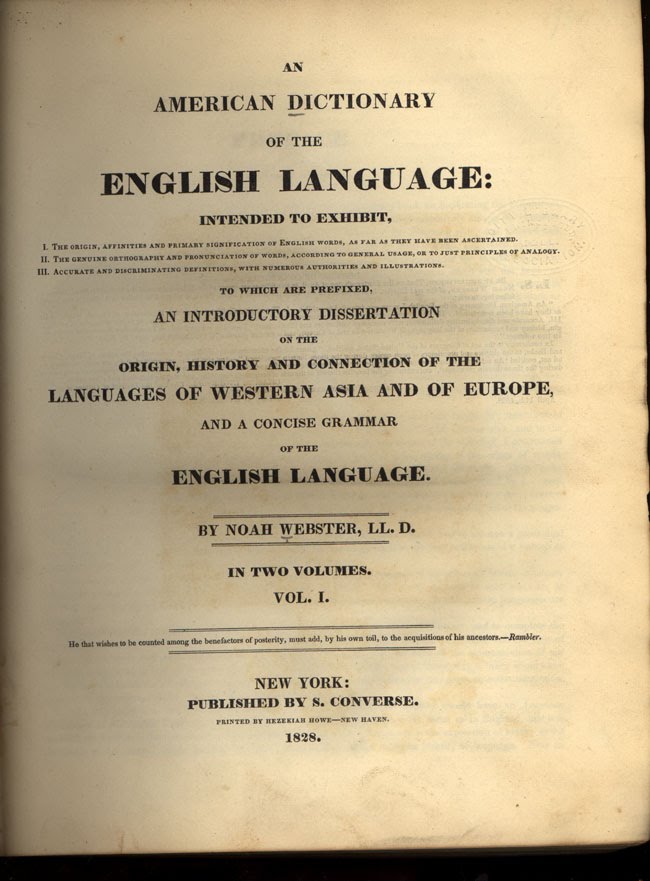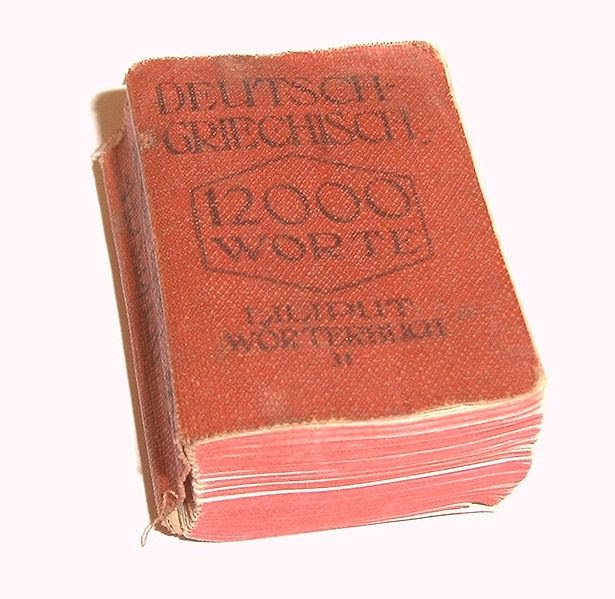Publishing History > A Short History of the World's Greatest Dictionaries
A Short History of the World's Greatest Dictionaries
From the massive Oxford English Dictionary (20 volumes) to the miniature Liliput dictionaries (just 4 cm wide), from dictionaries of words on clay tablets to the latest online databases, dictionaries have an important role in our cultural life and a fascinating story to tell.
What is a Dictionary?
A dictionary is a collection of words or subjects, often listed alphabetically, with definitions (as well as, optionally, usages, etymologies, pronunciations, and commentaries).
Dictionaries can be:
-- a vocabulary, or a collection of words often arranged alphabetically, in one or more languages (for example, the Oxford English Dictionary, the Harrap's French-English Dictionary)
-- a specialized work, often arranged alphabetically, in a particular subject area (for example, dictionaries of biography, law, music, medicine, science, and so on).
Early Dictionaries
The earliest recorded dictionaries that we know of are bilingual wordlists on cuneiform tablets from the Akkadian empire (c. 2300 BC).
From China we have a monolingual dictionary named the Erya which has survived from c. 3rd century BC and from Greece we still have fragments of a vocabulary, called Disorderly Words, which dates from the 4th century BC.
The earliest Sanskrit dictionary, the Amara-kosha, dates from the 4th century BC and is still in print.
Between the 8th and 14th centuries AD a number of Arabic dictionaries appeared, including the Lisan al-`Arab (13th century; the first large-scale dictionary of Arabic) and al-Qamus al-Muhit (14th century; a small handy dictionary with just words and their meanings).
Samuel Johnson
The first significant and reliable English dictionary was Samuel Johnson's A Dictionary of the English Language (1755). This dictionary gave textual references for each word (that is, a history of interesting usages of the word over the years) and the words were arranged in alphabetical order rather than by topic.
Johnson was not above inserting some humor into his dictionary. For example, the following entry:
"Lexicographer: a writer of dictionaries; a harmless drudge that busies himself in tracing the original and detailing the signification of words".
This dictionary was the standard English dictionary until the publication of the Oxford English Dictionary (1884-1928).
Noah Webster
In 1828 Noah Webster published An American Dictionary of the English Language. This comprehensive dictionary of the English language contained 70,000 words.
Americans of different parts of the country pronounced, spelled and used the same words differently, and Webster attempted to use his Dictionary as a means to standardize these variations. He also believed that English spelling was too complex, and so he introduced new American spellings -- for example, labor (instead of labour) and center (instead of centre).

Noah Webster's An American Dictionary of the English Language
An updated edition of this dictionary remains in print today under the name of the Merriam-Webster.
Miniature Dictionaries

One of the series of Liliput miniature dictionaries released in the 1920s-30s by the Leipzig publisher, Schmidt & Günther (sometimes confused with the Lilliput series of miniature dictionaries put out from the 1930s by the Berlin publisher, Langenscheidt).
Further Reading
Books
Collison, Robert L. Dictionaries of English and Foreign Languages, 2nd ed. New York, Hafner Publishing Company, 1971.
Murray, K. M. Elisabeth. Caught in the Web of Words: James A.H. Murray and the Oxford English Dictionary. Yale University Press, 1977.
Websites
Dictionary
A comprehensive bibliography of dictionaries in a wide range of languages and going back many centuries.
Share this page:
Author: David Paul Wagner
(David Paul Wagner on Google+)
|

